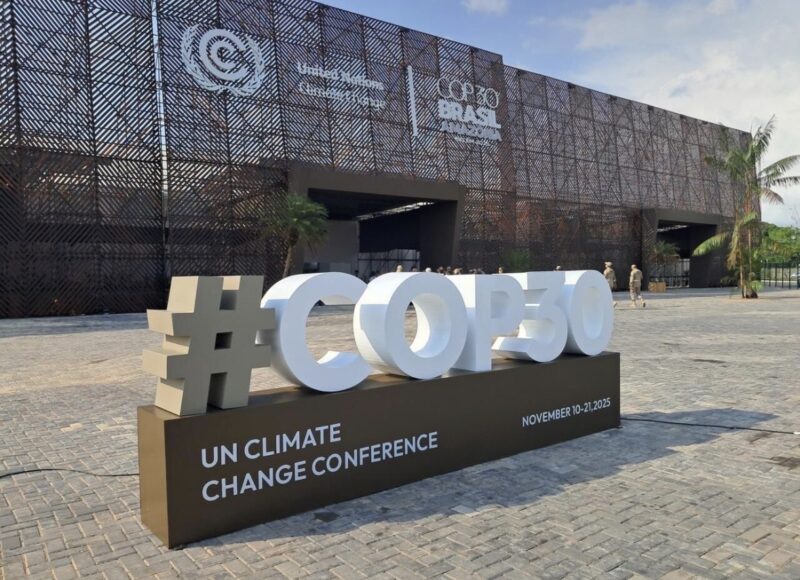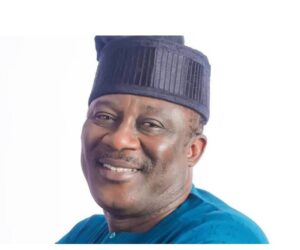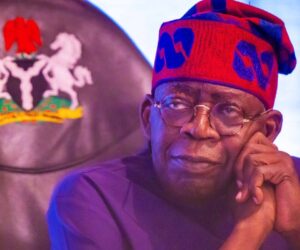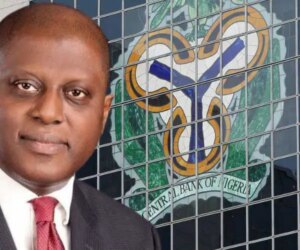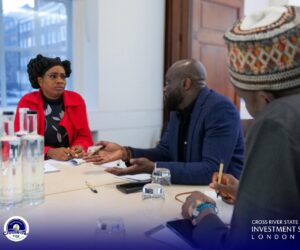The United Nations Climate Change Executive Secretary, Simon Stiell, has urged world leaders to drastically scale up climate finance, warning that global climate action will stall without a major increase in funding for developing nations.
Mr Stiell made the call on Saturday while addressing the third High-Level Ministerial Dialogue on climate finance at the 30th UN climate change conference (COP30) in Belém, Brazil.
Describing climate finance as the “lifeblood of climate action,” he said it is the engine that “turns plans into progress, and ambition into implementation.”
He noted that the dialogue is not a routine meeting but one aimed at rebuilding trust by providing clarity and predictability on the resources vulnerable countries can depend on to deliver their national climate and adaptation plans.
Trust, he warned, remains “dangerously fragile” and “without it, implementation slows, ambition falters, and progress becomes much harder.”
Although global cooperation has improved since the Paris Agreement—with rising public and private climate finance and more investments in clean energy, resilience and just transitions—Mr Stiell said the world is still “not far enough down that road.” Funding, he noted, remains insufficient, unpredictable and unevenly distributed.
COP30
Since 6 November, delegates from more than 180 countries have gathered in Belém for COP30 to negotiate priority actions to tackle climate change.
The COP is the supreme decision-making body of the UNFCCC and is mandated to review the implementation of the Convention and take decisions necessary to strengthen global climate action.
This year’s talks, billed for 10–21 November, focus on efforts to keep global temperature rise within 1.5°C, the submission of new national commitments (NDCs), and implementation of finance pledges made at COP29 in Baku, Azerbaijan.
Organisers say the COP30 Action Agenda is guided by the Global Stocktake and centres on six thematic areas: energy, industry and transport; forests, oceans and biodiversity; agriculture and food systems; resilient cities, infrastructure and water; human and social development; and enabling conditions of finance, technology and capacity.
At the opening of the summit on 6 November, UN Secretary-General António Guterres said COP30 “must ignite a decade of acceleration and delivery.”
“The 1.5°C limit is a red line for humanity. It must be kept within reach,” he said, urging countries to scale solutions that transform economies and protect vulnerable populations.
Mr Guterres warned that the widening adaptation finance gap continues to expose the world’s poorest to rising seas, deadly storms and extreme heat.
Nigeria’s Agenda for COP30
Ahead of COP30, President Bola Tinubu approved Nigeria’s national carbon market framework, the operationalisation of the climate change fund and the reinstatement of the National Council on Climate Change (NCCC) in the federal budget.
The approvals followed a presentation by the NCCC Director-General, Omotenioye Majekodunmi, during the council’s second meeting in Abuja.
Vice President Kashim Shettima, representing the president at the meeting, said Nigeria intends to use COP30 to “harness all opportunities for financing climate-resilient projects and related interventions, particularly from the global carbon market.”
He said addressing climate change is both an environmental necessity and “an opportunity to unlock new investments, jobs and innovations” across key sectors.
President Tinubu reaffirmed his administration’s commitment to mainstreaming climate action into national development and positioning Nigeria as a destination for green investment.
Ms Majekodunmi said Nigeria is now poised to tap new rounds of multilateral climate finance. She highlighted key recommendations including the adoption of a national carbon market framework capable of unlocking up to $3 billion annually, operationalisation of the climate change fund, and reinstatement of the NCCC budget line to ensure stable financing.
The Minister of Finance and Coordinating Minister of the Economy, Wale Edun, endorsed the proposals, pledging his ministry’s support.
Finance gaps
During Saturday’s dialogue, Mr Stiell underscored widening adaptation finance gaps, escalating climate impacts and rising debt burdens that continue to hinder vulnerable nations from accessing even existing commitments.
Developed countries were expected to double adaptation finance by 2024, following pledges made in Baku. COP29 also produced a landmark deal requiring wealthy nations to mobilise $300 billion annually for developing countries by 2035 and a total of $1.3 trillion annually for climate finance.
Despite this, many nations and organisations criticised the pledges as insufficient for their adaptation and mitigation needs. COP29 also saw agreement on operationalising Loss and Damage Fund, and finalising standards for creating carbon credits under Article 6.4 of the Paris Agreement.
Mr Stiell said meeting global finance targets requires countries to triple outflows from UNFCCC climate funds by 2030, including the Adaptation Fund, Least Developed Countries Fund and Special Climate Fund.
“These are not abstract numbers,” he said. “They are lifelines.”
He stressed that the availability of finance determines whether small island states can protect their coastlines, whether least developed countries can climate-proof agriculture, and whether emerging economies can shift away from fossil fuels without worsening inequality.
He urged countries to send a clear signal that scaling up climate finance must go hand-in-hand with improving accessibility, predictability and alignment with national priorities.
This, he said, requires expanding public finance through grants, concessional lending and non-debt instruments; simplifying access to reduce transaction costs; and tackling systemic barriers such as heavy debt, high capital costs and limited fiscal space.
He also called for wider use of equity, guarantees, blended finance and debt-for-climate swaps to attract large-scale private investment in low-emission, climate-resilient growth.
“Climate finance is not charity – it’s smart economics,” he said, describing climate action as the “growth story of the 21st century.”
Mr Stiell urged negotiators to ensure the next phase of Article 9.5 work produces “clear and actionable” outcomes that give developing nations forward visibility and demonstrate real progress on finance delivery. Strong reporting, he said, builds credibility—and credibility builds trust.
READ ALSO: COP30: Indigenous people block main entrance, stall access to venue
As the world watches COP30 for signs that global cooperation can deliver, he said nothing will speak louder than “real finance, flowing fast and fair.”
“When finance flows, ambition grows,” he said. “And when ambition grows, implementation follows — creating jobs, easing living costs, protecting communities and securing a more resilient planet for all.”
He called on countries to recommit to the spirit of Paris: predictability, transparency and shared purpose. Only then, he said, can the full benefits of climate action be unlocked “for everyone, everywhere.”

